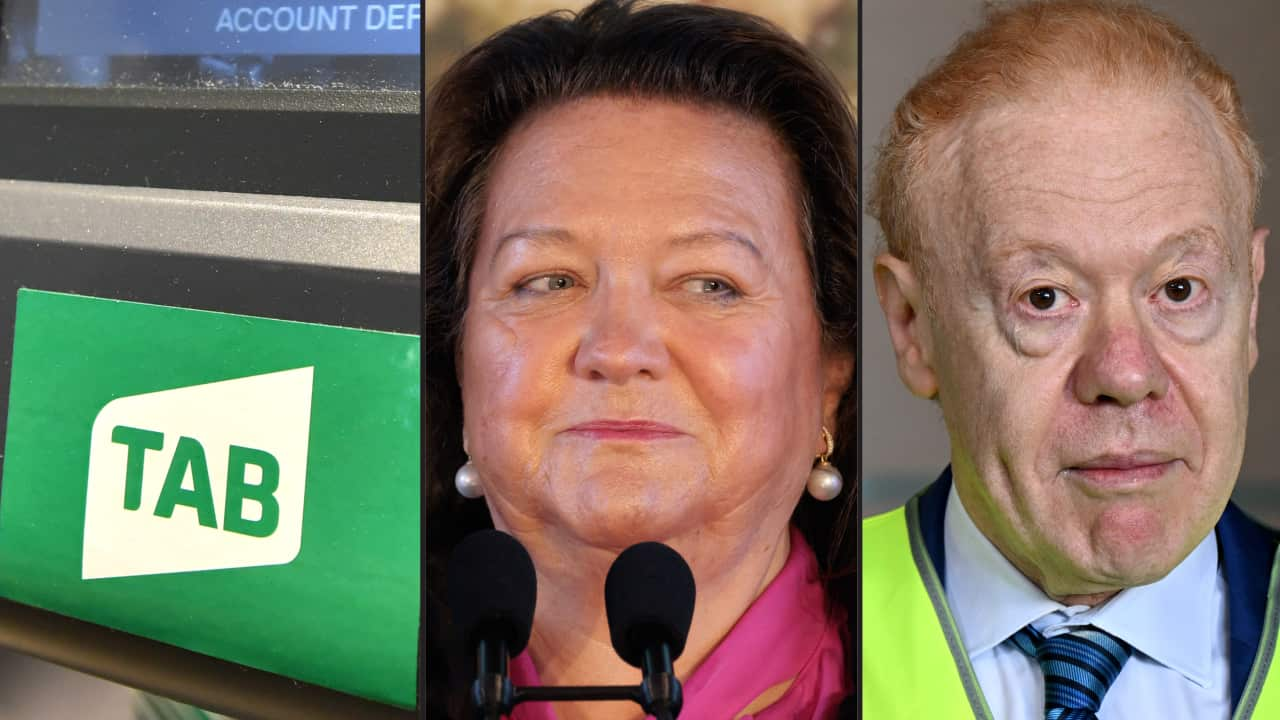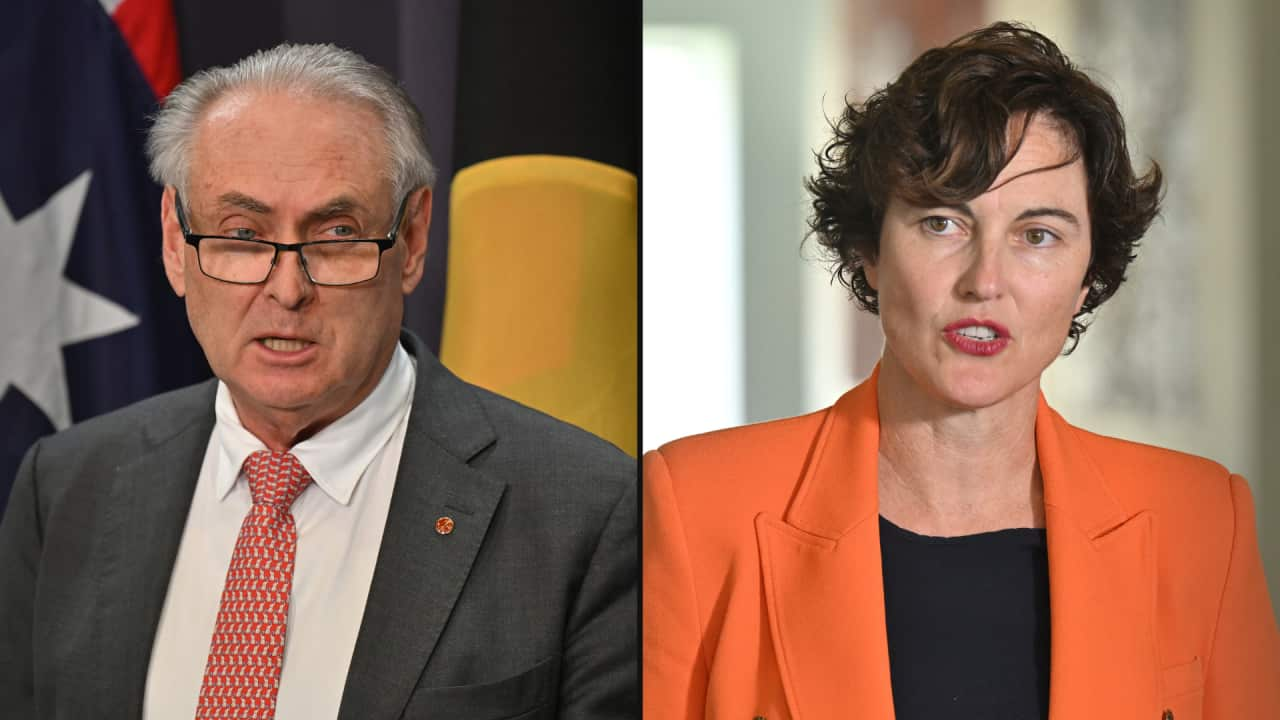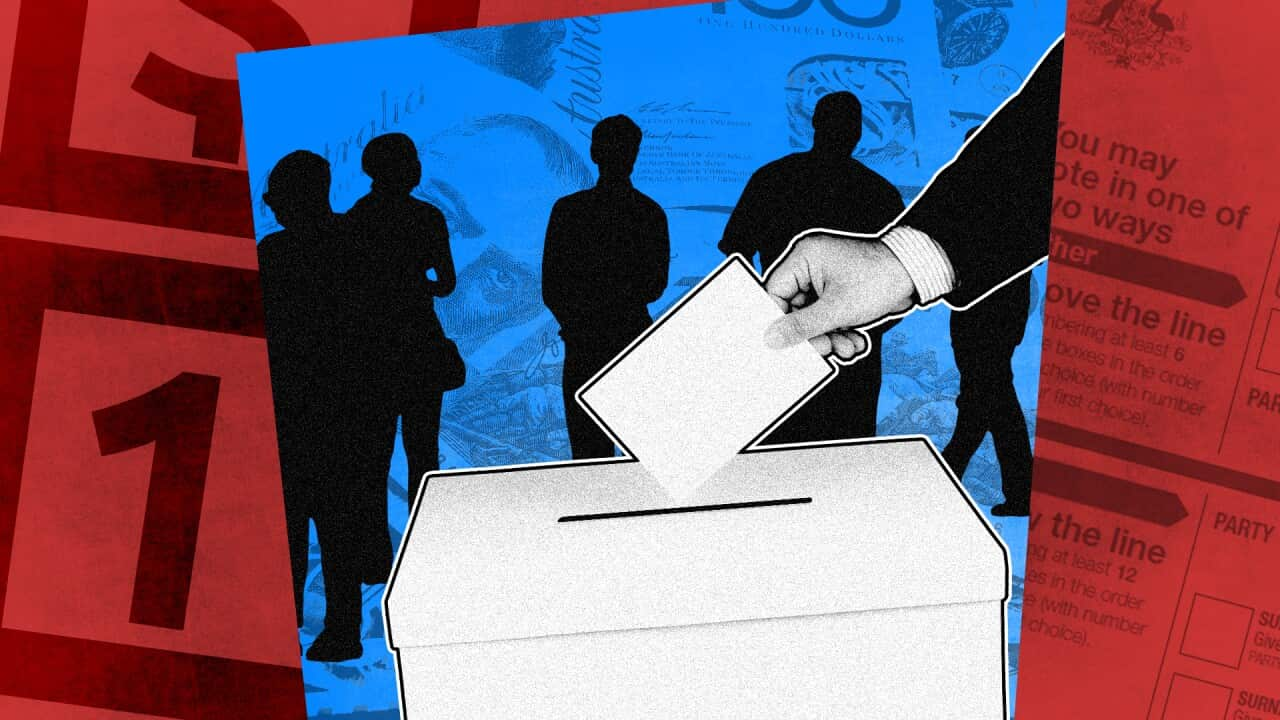Tens of millions of dollars of "dark" donations — money given to political parties without donor information because of weak disclosure laws — have sparked calls for electoral reform.
Labor and its state branches raked in $67.5 million in 2023/24, the Coalition banked more than $73 million and the Greens $17 million, according to Australian Electoral Commission data released on Monday.
The source of "hidden money" that's not required to be disclosed was almost $75 million, or 45 per cent, according to analysis by the Centre for Public Integrity. The sources of donations under $16,300 for 2023-24 don't need to be disclosed.
One of the largest donations was $1 million to federal Labor by Pratt Holdings, the company of billionaire Anthony Pratt.
Unions were a significant cash cow for Labor while banks, consultants and legal firms donated across party lines.
Mining giant Hancock Prospecting, headed by billionaire Gina Rinehart, donated $325,000 to the Liberal National Party of Queensland, $75,000 to the Country Liberal Party of the Northern Territory and $100,000 to the Liberals South Australia branch.
Betting big on politics
Wagering companies also donated tens of thousands of dollars to Labor as the government mulled reforming sports betting before ultimately shelving any legislation.
Sportsbet donated $88,000, Tabcorp $60,500, the Lottery Corporation $44,000 and Responsible Wagering Australia, the peak body for Australian-licensed wagering service providers, $66,000.
Sportbet's donation to Labor on 26 June 2024 came weeks before news leaked the government
When asked earlier today why the government had rejected this recommendation, Prime Minister Anthony Albanese said his government had "taken more action on problem gambling than any government since Federation".
"We've introduced BetStop, which has helped people substantially. We've banned the use of credit cards online as well, which was a big issue of sport gambling," he told the Daily Aus podcast.
Sportsbet also donated $60,000 to the Liberals and $15,000 to the Nationals.
Tabcorp donated tens of thousands of dollars more to Labor's state divisions, on top of more than $90,000 to the Liberals and Nationals and their associated state branches.
In response to a request for comment, Opposition communications spokesperson Melissa McIntosh said: "It has been almost two years since Opposition leader Peter Dutton made it clear that a Coalition government would prioritise protecting Australians from gambling harm."
"In June 2023, the Coalition introduced a bill to the Senate that would stop gambling ads for live sport one hour before, during and one hour after the television and radio broadcasting and live streaming of matches. Labor and the Greens voted against the bill," she said.
"Since the Opposition Leader’s announcement, the prime minister has been unable to make a stand on gambling advertising, despite a Labor-led report calling for it, and pressure from his own backbench and the teals and advocacy groups."
McIntosh gave no response to SBS News' inquiry about the gambling industry donations accepted by her party.
SBS News has contacted the Labor party for comment but is yet to receive a reply.
Greens senator Larissa Waters has taken aim at the major parties over today's disclosures.
"The Labor government have dropped their planned gambling advertising reform, and the Liberals never had any such plans — people will wonder if it's because they keep getting these donations from the gambling companies, from the pokies and from the Hotels Association," the Greens democracy spokesperson said.
However, the Greens' largest individual donor was Gold Coast gambler and mathematician Duncan Turpie, who donated around $275,000 to various branches of the party.
In early 2024, the Brisbane Times reported that Turpie had donated $472,088 to the party since 2017.
In response to a question from SBS News on this donation, Waters said: "Donations received from winnings made at the expense of gambling companies do not influence the Greens' position on gambling, unlike the major parties who benefit from the profits of those companies."
Proposed electoral donations reforms
Electoral donations reform is back on the agenda as parliament resumes for perhaps the last sitting fortnight before a federal election is called.
The government and Opposition haven't yet reached a deal about appropriate donations and expenditure caps.
Under the proposed changes, the donation disclosure threshold will be reduced to $1,000 from the current $16,900.
Candidates will be limited to spending $800,000 per election campaign and can only receive donations of up to $20,000 from an individual.
There will also be a cap on federal spending for non-political parties of $11 million, which covers unions and special interest groups like Climate 200, while registered political parties will have a ceiling of $90 million.
Under the proposed legislation, which is due to come back before the Senate in the coming days, political parties will also get more cash per vote from the AEC.
But independents have branded the proposal a major party stitch-up that props up Labor and Liberal coffers with public money by increasing the amount they receive back from the electoral commission.
The caps also make it harder for independents only running in a single seat to compete with major parties who also have access to tens of millions of dollars to spend on advertising.
Climate200 — which largely finances teal independents — marked $6 million in total receipts for the same financial year, with more than $1 million received from Keldoulis Investments and $1 million from Marcus Catsaras.
It donated $145,000 to Zoe Daniel, $132,000 to Monique Ryan, almost $80,000 to Allegra Spender, $40,000 to Kylea Tink and about $30,000 to both Kate Chaney and Zali Steggall. Daniel declared $374,000 in donations, Spender $567,000, Chaney $116,000, Steggall $264,000, Ryan $681,000, and Dr Scamps $145,000.




